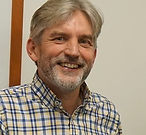Leading Revitalisation
- Ian Duncum

- May 23, 2022
- 3 min read
Updated: Jun 5, 2023

Conflict, a pastor leaving, tension over direction/vision, Covid-19 and so many other scenarios can deplete a church's attendance in a very short space of time. But it is possible to come back. A church I am currently working with has doubled in four months. What are some of the keys to unlock renewed vitality and engagement?
Mine the Learning
Two of the most important questions we can ask are, "What happened?" and "Why do you think it happened?" If there is still tension, it may be helpful for these to be individual conversations. However, there is also value in a structured group sharing context for attenders recognising that others are struggling in similar ways to them. Be aware that people will have different perspectives, and encourage the church to recognise this.
The point of this is not to blame, but to learn and take appropriate responsibility: "We didn't have conflict protocols in place." "We took our eyes off making disciples and equipping leaders." "As leaders, we were not asking good accountability questions, or insisting our pastor was engaged in pastoral supervision."
Be Aware of Emotion and Care Needs
There will be grief and anxiety. This will be expressed by people in various ways, and processed at different speeds. Pastoral transition is usually a time of heightened anxiety, because the future is not clear.
Providing opportunities for people to process their experiences and emotions through individual pastoral care or in face-to-face small groups will be key. The setting apart of a pastoral care team, with appropriate debriefing, will be a key to spreading the care load and moving forward.
Encourage Connection
When we have been through a difficult experience, the two things that renew us are time with God and time with others. Long, lingering morning teas and social activities can be re-energising. Individual and group prayer are important opportunities for healing. It is possible that strained relationships will need facilitated reconciliation.
It is probably a key time to re-invigorate your small group ministry and give leadership to small group leaders in responding to care needs (see point above), mentoring emerging leaders in their small group, and missional local engagement by their small group (see point below).
Reconnect with your Local Community
Look outward. Invite pictures of renewal and re-enagement as you facilitate re-visioning. It is probably an opportune time to ask some questions:
How will we respond to the loneliness, mental health, and relational struggles that many have experienced in lockdown?
How well equipped are all our attenders for relational faith-sharing?
What ministries in our church are community-facing, and are we utilising these to connect well with people?
What social media strategies do we have for being known in our community (e.g. Facebook ads, Google AdWords, SEO, Google maps)?
What is our welcoming strategy and who is responsible for it?
Have we designed a pathway to move people through increasing levels of engagement, both online and offline?
There is much more I could write; I dont want to give the impression that four simple steps will guarantee revitalisation, because there are many complex situations that churches find themselves in that need significant work. However I have led the revitalisation of a church in decline for 37 years, doubled the attendance of another church to 450 by multiplying small groups, and led growth in many other churches as a consultant. Growth and revitalisation are possibilities, but they can only be realized if you take committed, appropriate action today.
It is a good time to reflect and take stock of the health of your church. All churches will benefit from an external health review with practical recommendations for the way forward. This can be done with Ian over Zoom, or in person. You can book a free strategy session with Ian here or download a free church health checklist here. You can also book a free session to explore mentoring or pastoral supervision here.
© 2022 Ian Duncum. All rights reserved. No reproduction without written permission.
Rev Dr Ian Duncum is a trained and accredited (with John Mark Ministries) church consultant with 20 years experience of working with non-profit enterprises and churches across a number of denominations. This has also included denominational leadership in church health and development and church research in the tertiary education sector. An accredited minister with a track record of growing churches, Ian also trains church consultants, facilitates training for ministers and leaders, and mentors/supervises pastors and other leaders. He can be contacted at www.ianduncum.com.au or duncum@internode.on.net









Comments